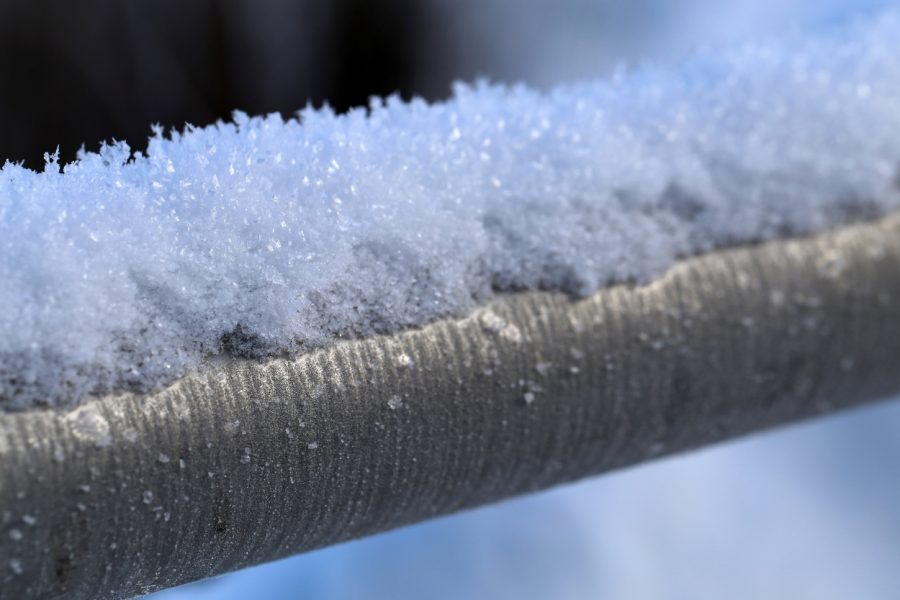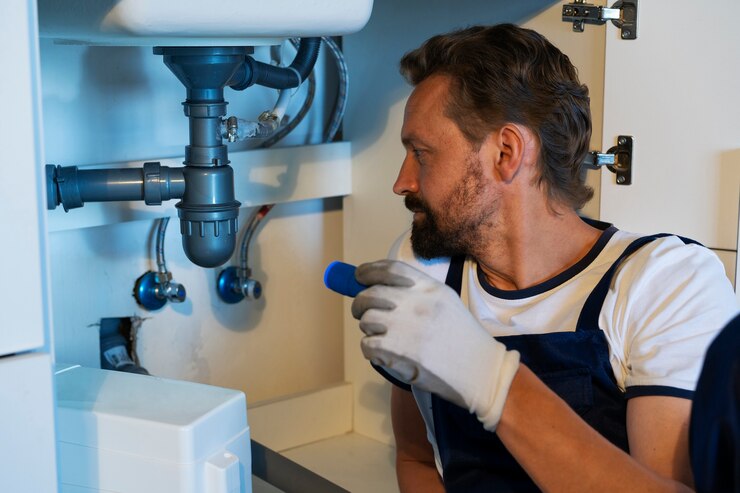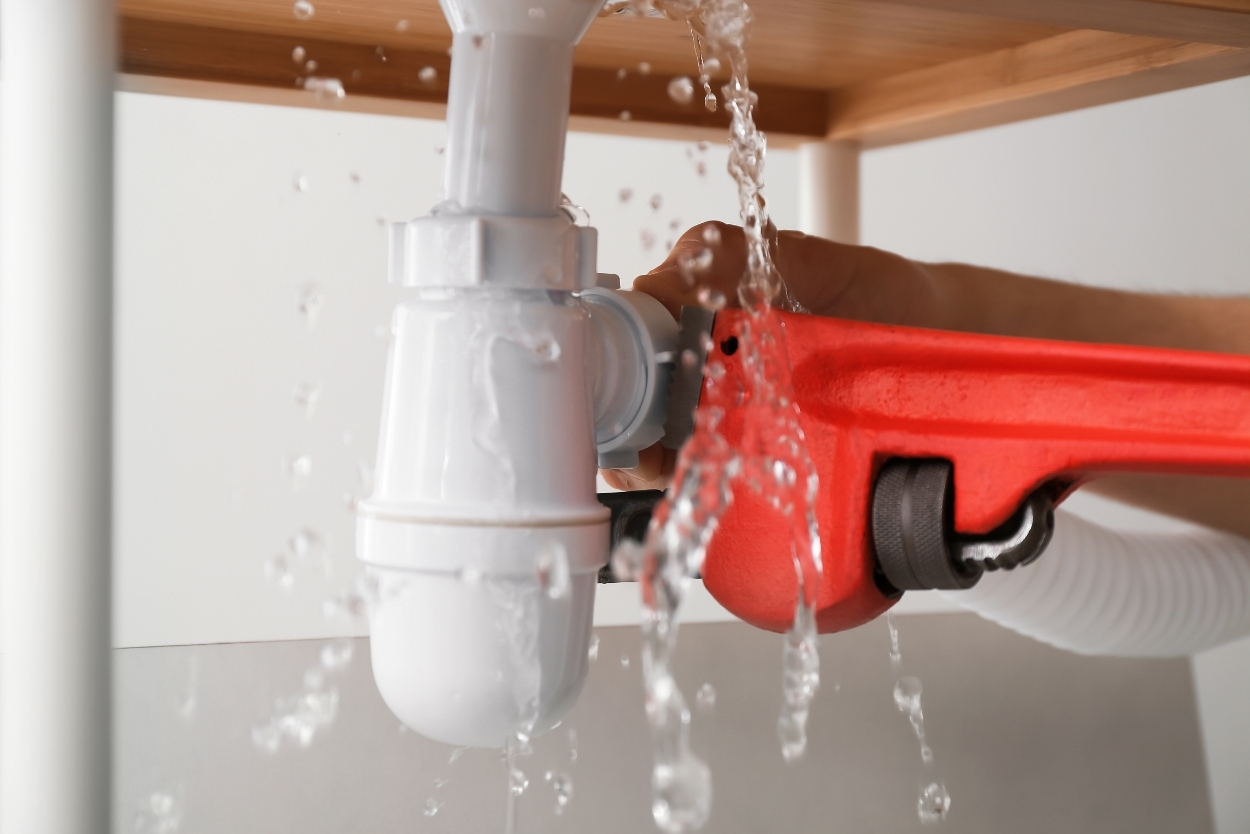Winter brings a set of challenges for homeowners, and one of the most common and potentially damaging issues is frozen pipes. When water inside a pipe freezes, it expands, creating pressure within the pipe that can cause it to crack or burst. While there are some steps you can take to mitigate the risk of frozen pipes, there are telltale signs that you may need to call a plumbing company to handle the issue professionally.
Here are the top five signs indicating that you should reach out to a plumbing company in Torrington, CT, for assistance.
Table of Contents
Key Takeaways
Why Frozen Pipes Are a Serious Issue
1. Potential for Burst Pipes
2. Costly Repairs
3. Long-Term Damage
5 Signs to Call a Plumbing Company for Your Frozen Pipes
1. Noticeable Drop in Water Flow
2. Unusual Sounds Coming from Pipes
3. Visible Frost or Ice on Exposed Pipes
4. Foul Odors Coming from Drains or Faucets
5. Fluctuations in Water Temperature
How a Plumbing Company Can Help
Steps a Plumbing Company Will Take to Fix Frozen Pipes
How to Prevent Frozen Pipes in the Future
Frequently Asked Questions
Call L&P Plumbing Today for Frozen Pipe Assistance!
Key Takeaways✔ Frozen pipes can burst, leading to severe flooding and water damage. ✔ Burst pipes require not only plumbing fixes but also extensive home repairs. ✔ Even unfrozen pipes can weaken over time, leading to leaks and mold growth. ✔ A noticeable drop in water flow is a key sign of freezing pipes. ✔ Banging or gurgling sounds indicate pressure buildup in frozen pipes. ✔ Visible frost on exposed pipes signals freezing and the need for urgent action. ✔ Strange smells from drains or faucets suggest blocked frozen pipes. ✔ A plumbing company can offer insulation, seal drafts, and reroute pipes to prevent freezing. |
Why Frozen Pipes Are a Serious Issue

Frozen pipes aren’t just inconvenient; they can lead to some of the most expensive and damaging problems a homeowner can face. The danger is that frozen pipes can develop into larger issues quickly, leaving little time for intervention if the signs are ignored.
1. Potential for Burst Pipes
The most severe consequence of frozen pipes is a burst pipe. Water expands as it freezes, creating pressure that even the sturdiest pipes may not withstand. A burst pipe can release a torrent of water into your home, causing flooding and severe water damage to floors, walls, furniture, and electrical systems.
- Common Areas Affected by Frozen Pipes: Unheated spaces like basements, attics, garages, or exterior walls are particularly vulnerable to frozen pipes. If these pipes burst, the damage is often widespread.
- Home Damage: A burst pipe is not only a plumbing emergency but a home disaster. Water damage can cost thousands of dollars to repair, and the restoration process may take weeks or even months.
To prevent this, calling a plumbing company at the first sign of freezing pipes is critical. A professional plumbing company can step in before pipes burst, minimizing both damage and repair costs.
2. Costly Repairs
Repairs from frozen or burst pipes go beyond fixing the plumbing. If a pipe bursts, you’ll likely have to deal with water damage repair, which can include replacing drywall, flooring, and even furniture. In some cases, mold remediation may be necessary if the water damage goes unnoticed for too long. A plumbing company can save you from these extensive repairs by addressing frozen pipes early, preventing them from bursting.
- Damage to Structural Integrity: Water from a burst pipe can weaken the structure of your home. Long-term exposure to moisture can compromise the foundation, floors, and wooden framing of your house.
- Hidden Costs: Even after a burst pipe is repaired, the costs of restoring your home can mount. You may need to hire multiple contractors—one for plumbing, another for water damage restoration, and potentially an electrician if water reaches your electrical systems.
3. Long-Term Damage
Frozen pipes can lead to issues that last well beyond winter. Even if your pipes don’t burst, the freezing and thawing process can weaken them over time. A plumbing company can inspect your pipes for damage after a freeze and replace or reinforce weak areas before they become problematic.
- Impact on Pipe Lifespan: Constant freezing and thawing can compromise the integrity of your pipes, leading to leaks that may not be immediately obvious but cause damage over time.
- Leaks and Mold Growth: If a pipe develops a slow leak after freezing, it can lead to mold growth, which is both costly to remove and hazardous to your health.
5 Signs to Call a Plumbing Company for Your Frozen Pipes
1. Noticeable Drop in Water Flow
When water flow from your faucets slows to a trickle or stops entirely, this is often a clear sign that your pipes are freezing. The ice inside the pipe creates a blockage that restricts water from flowing through. If a pipe is frozen, there’s already around a 50% likelihood that it has cracked, further increasing the urgency of addressing the issue.
- Frozen Blockages: Ice blockages can quickly expand within the pipe, increasing internal pressure and risking severe damage. This buildup can occur rapidly in exposed or unheated areas, leading to potential bursts if not addressed promptly.
- Immediate Action Required: A plumbing company can thaw the pipes safely and restore normal water flow before the ice fully blocks the pipe or causes it to burst.
2. Unusual Sounds Coming from Pipes
If you hear strange noises like banging, clanking, or gurgling, these are often signs of water struggling to move through a frozen pipe. The pressure created behind the ice blockage can create vibrations and noise as the water tries to push through.
- Banging or Clanking: These sounds indicate that water is hitting the ice blockage, causing vibrations within the pipe. This is a sign that pressure is building up, which can eventually lead to a burst.
- Gurgling: Gurgling noises suggest air bubbles are trapped behind the ice blockage as water attempts to flow past. This usually happens when the ice is causing partial obstruction.
- Whistling or Hissing: High-pitched whistling or hissing noises can occur when water is forced through a narrow space due to ice. This is a warning that the pipe is under stress and may burst if not addressed.
3. Visible Frost or Ice on Exposed Pipes
Frost on the outside of exposed pipes, particularly in unheated areas like basements or garages, is a sure sign that the water inside is freezing. Visible ice on a pipe means the freezing process has already begun, and it’s only a matter of time before the pipe is fully blocked or bursts.
If you see frost on your pipes, it’s crucial to contact a plumbing company immediately. They can safely thaw the pipes and prevent further damage, saving you from more costly repairs.
4. Foul Odors Coming from Drains or Faucets
When pipes freeze, they can block the flow of water and sewage. This blockage can cause unpleasant smells to come from your drains or faucets, as waste builds up behind the frozen section of the pipe.
- Potential Causes of the Odor: The foul smell often results from trapped sewage, stagnant water, or food particles that cannot drain properly. In some cases, gases from the sewage system can back up into your home due to the blockage, causing a noticeable odor.
- Waste Buildup: Foul odors are a sign that water and waste are not draining properly due to a frozen pipe. This can also be a health hazard if left unaddressed.
- Professional Help Needed: A plumbing company can locate the blockage, clear it, and ensure the system is draining correctly.
5. Fluctuations in Water Temperature
If you notice that your water is coming out colder than usual, or the temperature fluctuates suddenly, it could be a sign that the water is freezing in the pipes. Frozen sections of the pipe may be preventing hot water from reaching your faucet.
- Inconsistent Hot Water: A frozen section in your pipe can block hot water from reaching the faucet, leading to uneven water temperatures. This is particularly noticeable in extreme cold weather.
- Avoid Further Damage: Calling a plumbing company when you experience inconsistent water temperatures can prevent further damage to your pipes.
How a Plumbing Company Can Help
1. Conduct a Professional Diagnosis
Frozen pipes aren’t always easy to spot, especially in areas that are out of sight, like behind walls or in crawl spaces. A plumbing company can conduct a thorough inspection to detect frozen pipes and assess their condition.
- Use Advanced Technology: A professional plumbing company might use thermal imaging cameras or moisture meters to detect freezing deep within your walls without having to open them up, saving you from unnecessary damage.
- Provide Expert Insight: A licensed plumber can assess whether the pipes are frozen solid or just partially blocked by ice. They can also determine if the pipe has been weakened and is at risk of bursting, providing a detailed analysis to prevent further issues.
2. Implement Safe Thawing Methods
Many homeowners resort to dangerous or ineffective methods to thaw their frozen pipes. For example, using a hair dryer or space heater may seem like a quick fix, but these methods can lead to uneven heating and increased pressure inside the pipes, which could cause them to burst. A plumbing company uses safe and controlled methods to avoid these risks.
- Utilize Professional Tools: A plumbing company employs specialized equipment like heating blankets, electric pipe-thawing devices, or infrared heat guns to thaw pipes evenly and safely.
- Manage Controlled Thawing: Thawing frozen pipes too quickly can cause them to crack. A plumbing company understands how to manage the process to avoid sudden temperature changes that could further damage your pipes, ensuring the thawing is done gradually and safely.
3. Recommend Preventative Solutions
In addition to fixing the immediate problem, a plumbing company can recommend long-term solutions to prevent future freezing. This might involve insulating exposed pipes, sealing gaps that let cold air into your home, or rerouting vulnerable pipes to safer areas.
- Install Pipe Insulation: A plumbing company can install foam or fiberglass insulation around exposed pipes to keep them warmer during cold weather, significantly reducing the risk of freezing.
- Seal Drafts and Gaps: Gaps in windows, doors, or walls can let in cold air, which may freeze nearby pipes. A plumbing company can help seal these gaps to protect your plumbing system from exposure to cold drafts.
- Re-Route Pipes if Necessary: In cases where pipes are regularly exposed to freezing temperatures, a plumbing company might recommend rerouting them through warmer areas of the home. This not only prevents freezing but also improves the overall efficiency of your plumbing system.
Steps a Plumbing Company Will Take to Fix Frozen Pipes
If you’ve identified any of the above signs, it’s time to call a plumbing company. Here’s how they will handle the situation:
1. Assessment of the Problem
A plumbing company will first inspect your pipes to locate the frozen section and determine if any pipes have cracked or burst. This initial inspection is crucial for developing a plan to address the issue. They may use advanced tools like thermal cameras or moisture meters to identify frozen pipes hidden behind walls or under floors.
2. Thawing the Pipes
Once the problem is diagnosed, the plumbing company will use specialized equipment to safely thaw the frozen pipes. The key to safely thawing pipes is to apply heat gradually and evenly to avoid cracking. A plumbing company can use techniques like heated blankets or pipe-thawing machines to accomplish this.
3. Checking for Leaks or Cracks
After the pipes are thawed, the plumbing company will inspect them for any leaks, cracks, or other damage caused by the freezing. If any cracks or leaks are found, the plumber will repair or replace the damaged section to ensure your plumbing system is back in working order.
4. Preventative Recommendations
After addressing the immediate problem, the plumbing company will provide recommendations to prevent future freezing, such as adding insulation or relocating pipes. Insulating pipes, sealing drafts, or rerouting plumbing can help protect your system from future freezes.
How to Prevent Frozen Pipes in the Future
Prevention is always better than dealing with the aftermath of frozen pipes. Here are a few ways a plumbing company can help you protect your home:
1. Insulate Exposed Pipes
A plumbing company can install insulation around exposed pipes, particularly those in basements, attics, or garages. This simple step helps keep pipes warmer during cold weather and prevents freezing. Use foam pipe insulation or fiberglass wraps that can keep pipes insulated and protected from freezing temperatures.
2. Seal Cracks and Gaps
Cracks in windows, doors, or walls can let in cold air, increasing the likelihood of frozen pipes. A plumbing company can help seal these gaps to keep your home warm and your pipes protected.
3. Drip Faucets in Cold Weather
In extremely cold weather, a plumbing company might advise you to leave faucets dripping slightly. This keeps water moving through the pipes, making it less likely to freeze.
4. Conduct Regular Maintenance
Having a plumbing company conduct regular maintenance on your plumbing system can help identify weak spots before they become a problem. Early intervention can save you from the headaches of frozen pipes.
Frequently Asked Questions
What should I do if my pipes are frozen but haven’t burst yet?
If your pipes are frozen but haven’t burst, turn off the water supply immediately to reduce pressure buildup. Avoid using any DIY methods to thaw the pipes, as improper techniques can cause them to burst. Contact a plumbing company to safely thaw the pipes and assess for any damage.
How much does it cost to fix a frozen pipe?
The cost to fix a frozen pipe varies depending on the extent of the freezing and any damage, such as cracks or bursts. Typically, the cost includes thawing the pipes, repairs, and preventive measures to avoid future freezes. A plumbing company can provide a more accurate estimate after inspecting your plumbing system.
Can I prevent my outdoor pipes from freezing?
Yes, insulating outdoor pipes and faucets is one of the most effective ways to prevent freezing. A plumbing company can help install insulation sleeves, shut off outdoor water supplies, and recommend additional winterizing steps. Taking these measures before cold weather hits can save you from frozen pipes and costly repairs.
When is the best time to winterize my pipes?
It’s best to winterize your pipes before the first freeze, typically in the fall when temperatures begin to drop. A plumbing company can inspect your system and ensure all exposed pipes are insulated and protected from cold weather. Early preparation is key to avoiding frozen pipes during winter.
How long does it take for pipes to freeze in cold weather?
Pipes can freeze within 6-8 hours when exposed to freezing temperatures, especially in unheated areas like basements or garages. The risk increases when temperatures drop below 20°F. A plumbing company can help protect your pipes by insulating them and suggesting other preventive measures.

Call L&P Plumbing Today for Frozen Pipe Assistance!
Don’t wait until frozen pipes cause serious damage to your home. If you’re in Torrington, CT, and notice any signs of freezing pipes, contact L&P Plumbing immediately for expert help. Our team of professionals at L&P Plumbing in Torrington, CT, has the tools and experience to safely thaw your pipes and prevent costly repairs. Protect your home this winter—call L&P Plumbing for all your plumbing needs today!
Contact us today!

